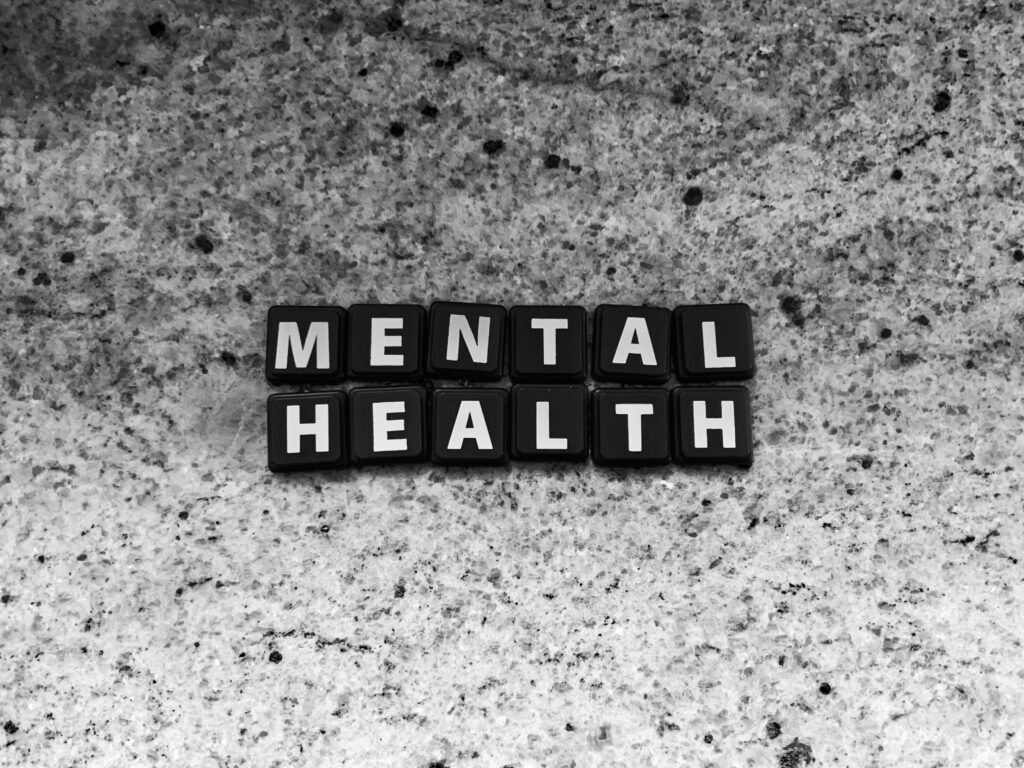Samar Faraz Khawaja, Student, Jamia Ahmadiyya Canada

Physical health and mental health are two of the most crucial aspects of an individual’s overall well-being. Physical health refers to how an individual’s internal and external body organs function and how a person physically performs. On the other hand, mental health refers to a person’s psychological, emotional and social well-being. While it may seem that one of these two aspects of life is more important than the other in some way, in reality, both physical and mental health are equally important in one’s life, and both of them can impact an individual’s overall well-being.
Physical health is essential for our body as it allows our body to function properly in our daily lives and it helps us with our day-to-day activities such as walking, working, running, exercising and many more. Physical health is also an important component of an individual’s healthy lifestyle and it improves one’s health outcomes across their lifespan. Research has shown that as moderate-to-vigorous physical activity (MVPA) increases, all-cause mortality (death from all causes) decreases. (“Physical Activity & Why It’s Important,” 16 February 2023, healthcare.utah.edu)
When we are healthy, we are more capable of being active and achieving our life goals and we are also capable of having a higher quality of life and a longer life. Being physically active can improve one’s brain health, reduce the risk of disease, strengthen bones and muscles, and improve our ability to do everyday activities. (“Benefits of Physical Activity,” www.cdc.gov)
Mental health is an important aspect of an individual’s life, as it plays a huge impact on our day-to-day life as well. It can have a lasting effect on a person’s education, career, relationships, etc. According to the National Institute of Mental Health (NIMH), 1 in 5 adults now lives with a moderate to severe mental health condition. The Centers for Disease Control and Prevention (CDC) further notes that over 50% of Americans will be diagnosed with mental illness in their lifetime. (Mars Girolimon, “Why Is Mental Health Important?” www.snhu.edu, 24 August 2022) In another research it was found out that a person has 3.4 poor mental health days per month. (“The Link between Exercise and Mental Health,” www.uclahealth.org, 17 October 2018). These statistics reveal how serious of a problem mental health is these days.
Although both physical and mental health are important on their own; however, in reality, none takes precedence over the other. If one of these aspects of life is affected, then the other is most likely to be impacted as well. According to a research, physical health problems significantly increase our risk of developing mental health problems, and vice versa. (“Physical Health and Mental Health,” www.mentalhealth.org.uk, 18 February 2022)
In addition, people with serious mental health conditions are at high risk of experiencing chronic physical conditions and people with chronic physical conditions are at risk of developing poor mental health. (“Connection between Mental and Physical Health”, 2023, https://ontario.cmha.ca) This is proven by research in which it was found that nearly one in three people with a long-term physical health condition also has a mental health problem, most often depression or anxiety. (“Physical Health and Mental Health,” www.mentalhealth.org.uk, 18 February 2022) This is because both physical health and mental health are directly connected to each other and when a person is physically or mentally affected, the other health aspect automatically starts to get affected as well. Physical health and mental health can have a significant effect on each other indirectly as well. For example, mental health may affect an individual’s decision-making process, impairing their ability to access information on their health and the quality of healthcare providers, and thus impacting their physical health. (Julius Ohrnberger, Eleonora Fichera, and Matt Sutton, “The Relationship between Physical and Mental Health: A Mediation Analysis,” Social Science & Medicine 195, no. 195 (December 2017): 42–49, https://doi.org/10.1016/j.socscimed.2017.11.008). In addition, worse physical health may imply a loss of wages or productivity, reducing access to healthier foods and environments and ultimately negatively affecting mental health, which may include a lack of sleep and stress at work (Ibid.). Thus, both affect each other indirectly.
The belief that physical health is more important than mental health is put forth by some. It is believed that exercise can help manage symptoms of depression and anxiety, reduce stress, improve self-esteem, and enhance mood. (Aarti Agarwal, “Does Physical Health Affect Your Mental Health?” 6 January 2024, www.juno.care). One could argue that because of this physical health takes precedence over mental health. In reality, this is not true because, although exercising helps a person stay fit mentally, it doesn’t help physical health take precedence over mental health. This is because there can be a point made that research has shown that mental illnesses can impact the rest of your body. (“Mental Health Is Just as Important as Your Physical Health,” 28 April 2022, healthcare.utah.edu) Therefore, solely focusing on one benefit doesn’t do justice. When we look at both health aspects overall, then both are connected and none takes precedence over the other.
In conclusion, both physical and mental health have an important effect on an individual’s life. However, it cannot be inferred that the physical health aspect is more important than mental health. This is because mental health plays a similar role in one’s life as physical health. Additionally, mental health has a direct and indirect effect on the physical health of a person. And physical health also has a direct and indirect effect on an individual’s mental health. Therefore, one health aspect cannot be more important than the other.

